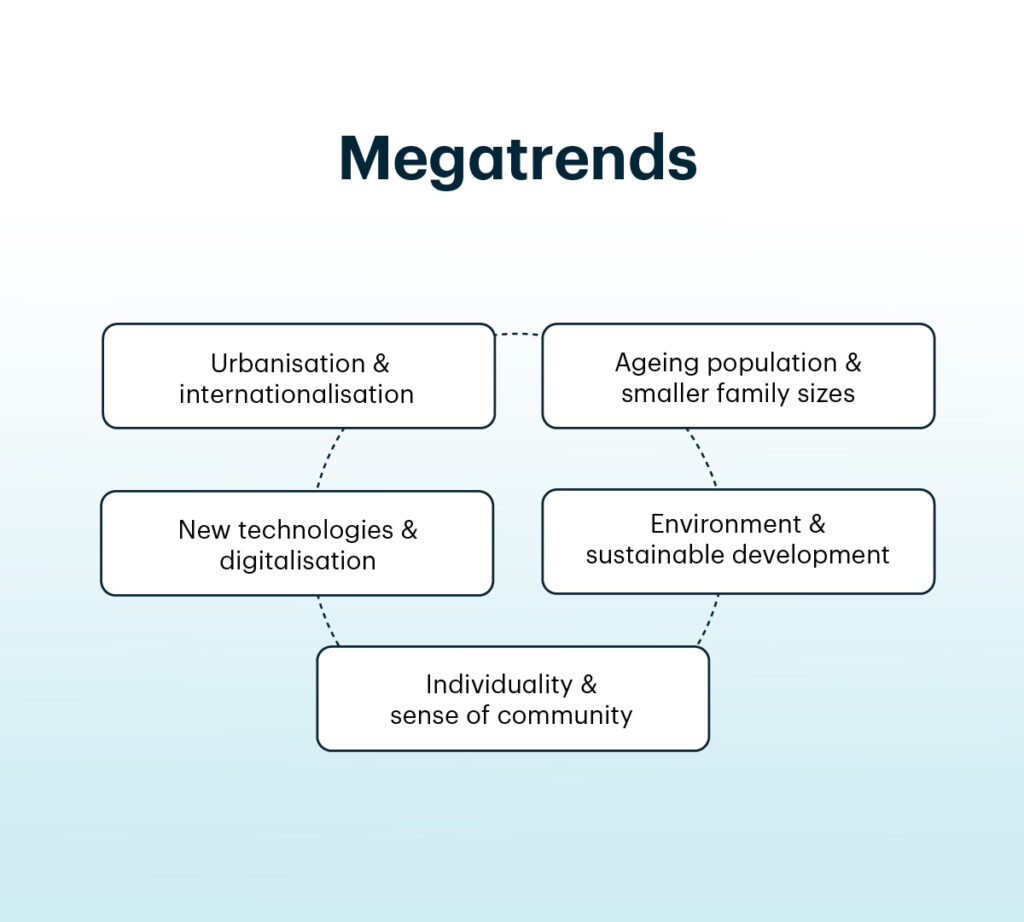Operating environment and trends
As Kojamo operates in the residential real estate sector, the company is affected particularly by the situation in the residential property market and development in Finnish growth centres. The company is also affected by macroeconomic factors, such as economic growth, employment, disposable income, inflation, regional population growth and household sizes.
Towards a balancing market
The slowing of inflation and falling interest rates have supported global economic growth, which has remained fairly strong despite trade policy and geopolitical tensions. The Finnish economy has also turned to growth, but the GDP for the year as a whole was slightly lower than the previous year. Residential start-ups have declined sharply, but there has still been oversupply in the rental market due to the completion of previously started housing production. The market is beginning to balance. Population growth is expected to remain strong in the largest cities.
Read more about our operating environment from our Annual Report 2024
Read updated information about our operating environment from our interim reports

Kojamo responds to the trends of urbanisation, digitalisation and communality in accordance with its strategy. Kojamo offers rental apartments and living services for residents in Finnish growth centres.
Page updated 8 May 2025